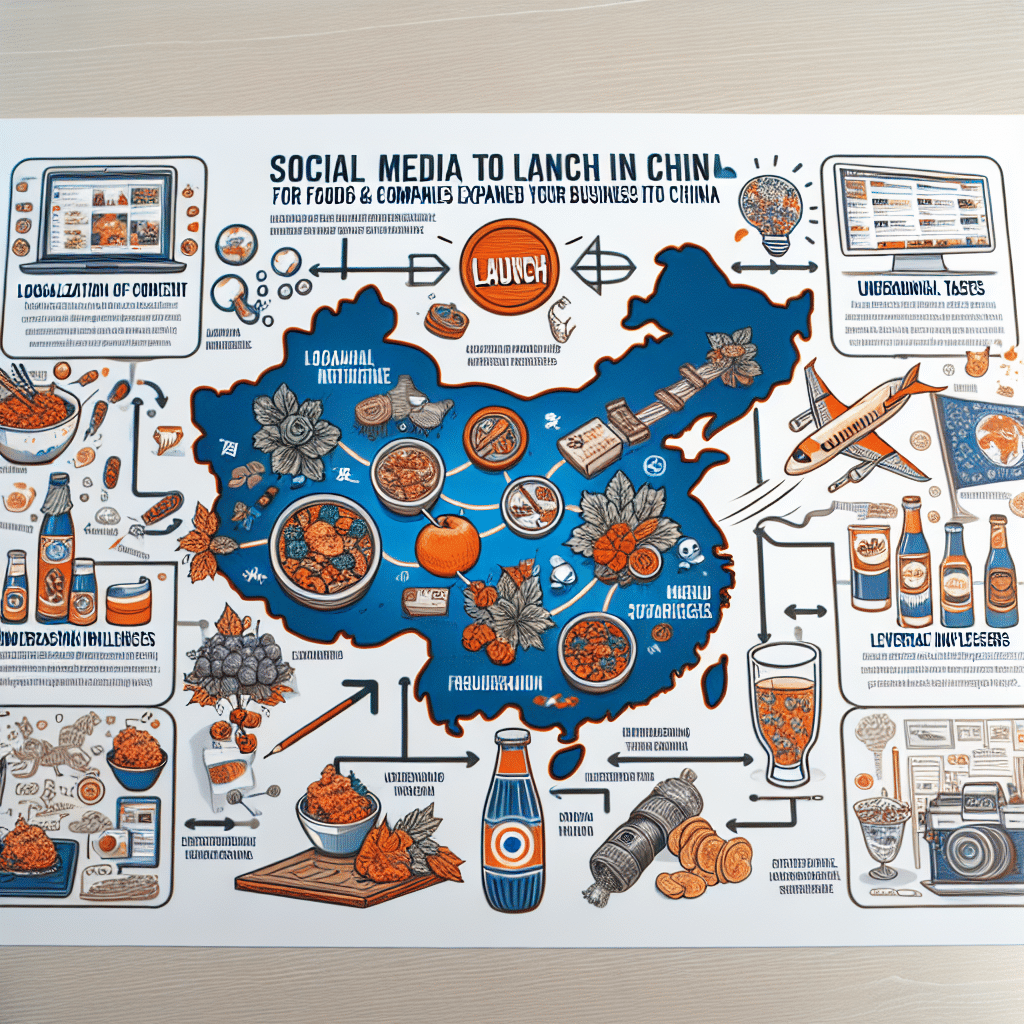Social Media Pointers for Food and Beverage Brands Launching in China
-
Table of Contents
- Social Media Strategies for Food and Beverage Brands Entering the Chinese Market
- Understanding the Chinese Social Media Ecosystem
- Localizing Content for Chinese Audiences
- Leveraging KOLs and KOCs
- Engaging with User-Generated Content
- Utilizing Social Commerce
- Investing in Short-Video Content
- Adapting to Platform-Specific Features
- Monitoring and Responding to Trends
- Ensuring Compliance with Regulations
- Conclusion: Key Takeaways for Success
- ETChem: Your Partner for High-Quality Protein Products
Social Media Strategies for Food and Beverage Brands Entering the Chinese Market
The Chinese market, with its vast consumer base and digital savviness, presents a lucrative opportunity for food and beverage brands looking to expand their global footprint. However, launching in China requires a nuanced understanding of its unique social media landscape. This article provides essential pointers for food and beverage brands aiming to make a splash on Chinese social media platforms.
Understanding the Chinese Social Media Ecosystem
Before diving into specific strategies, it’s crucial to understand that China’s social media ecosystem is distinct from the Western world. Platforms like Facebook, Twitter, and Instagram are blocked in China, making local platforms such as WeChat, Weibo, Douyin (TikTok’s Chinese counterpart), and Xiaohongshu (Little Red Book) the go-to channels for digital marketing.
- WeChat: A multi-purpose app with over 1 billion monthly active users, offering messaging, social media, and mobile payment features.
- Weibo: Often likened to Twitter, Weibo is a microblogging platform with over 500 million monthly active users.
- Douyin: The original version of TikTok, Douyin is a short-video platform that has taken China by storm, boasting over 600 million daily active users.
- Xiaohongshu: A lifestyle platform that combines social media and e-commerce, allowing users to post product reviews and make purchases within the app.
Localizing Content for Chinese Audiences
Localization goes beyond translating content into Mandarin. It involves adapting your brand’s messaging to resonate with cultural nuances, trends, and consumer behavior in China. For instance, incorporating traditional Chinese elements or aligning with Chinese festivals can create a sense of familiarity and appeal to local consumers.
Leveraging KOLs and KOCs
Key Opinion Leaders (KOLs) and Key Opinion Consumers (KOCs) wield significant influence in China’s social media. Collaborating with these influencers can help brands gain credibility and reach a wider audience. KOLs are often celebrities or well-known figures, while KOCs are everyday consumers who have built a following based on their authentic reviews and recommendations.
Engaging with User-Generated Content
Encouraging user-generated content (UGC) is a powerful way to build community and trust around your brand. Chinese consumers value the opinions of their peers, so showcasing customer reviews, photos, and videos can enhance your brand’s authenticity and encourage more engagement.
Utilizing Social Commerce
Social commerce is deeply integrated into Chinese social media platforms. Brands can set up shops on WeChat, Weibo, and Xiaohongshu, allowing consumers to make purchases without leaving the app. This seamless integration of social media and e-commerce is a key driver of online sales in China.
Investing in Short-Video Content
Short-video platforms like Douyin are incredibly popular in China. Food and beverage brands can capitalize on this trend by creating engaging, snackable content that showcases their products in creative ways. This format is ideal for recipe videos, behind-the-scenes looks, and influencer collaborations.
Adapting to Platform-Specific Features
Each social media platform in China has unique features that brands can leverage. For example, WeChat’s Mini Programs allow users to interact with apps within WeChat itself. Brands can create Mini Programs for loyalty programs, interactive games, or even augmented reality experiences to engage users.
Monitoring and Responding to Trends
Staying on top of trending topics and hashtags can help brands remain relevant and timely in their marketing efforts. Participating in viral challenges or commenting on hot topics can increase visibility and show that your brand is in tune with the Chinese market.
Ensuring Compliance with Regulations
China has strict regulations regarding online content. Brands must ensure that their social media activities comply with local laws and regulations to avoid penalties or bans. This includes adhering to advertising laws, censorship rules, and data privacy regulations.
Conclusion: Key Takeaways for Success
To succeed on Chinese social media, food and beverage brands should focus on localizing content, leveraging influencers, engaging with UGC, utilizing social commerce, creating short-video content, adapting to platform-specific features, monitoring trends, and ensuring compliance with regulations. By following these pointers, brands can effectively navigate the Chinese social media landscape and connect with millions of potential customers.
ETChem: Your Partner for High-Quality Protein Products
As food and beverage brands expand into the Chinese market, partnering with reliable suppliers like ETChem can provide a competitive edge. ETChem’s extensive range of collagen products, including marine, fish, bovine, and chicken collagen, are perfect for brands looking to enhance their offerings with high-quality protein ingredients. Their commitment to quality, taste, and solubility makes them an ideal choice for brands aiming to meet the discerning tastes of Chinese consumers.
About ETChem:
ETChem, a reputable Chinese Collagen factory manufacturer and supplier, is renowned for producing, stocking, exporting, and delivering the highest quality collagens. They include marine collagen, fish collagen, bovine collagen, chicken collagen, type I collagen, type II collagen and type III collagen etc. Their offerings, characterized by a neutral taste, instant solubility attributes, cater to a diverse range of industries. They serve nutraceutical, pharmaceutical, cosmeceutical, veterinary, as well as food and beverage finished product distributors, traders, and manufacturers across Europe, USA, Canada, Australia, Thailand, Japan, Korea, Brazil, and Chile, among others.
ETChem specialization includes exporting and delivering tailor-made collagen powder and finished collagen nutritional supplements. Their extensive product range covers sectors like Food and Beverage, Sports Nutrition, Weight Management, Dietary Supplements, Health and Wellness Products, ensuring comprehensive solutions to meet all your protein needs.
As a trusted company by leading global food and beverage brands and Fortune 500 companies, ETChem reinforces China’s reputation in the global arena. For more information or to sample their products, please contact them and email karen(at)et-chem.com today.





